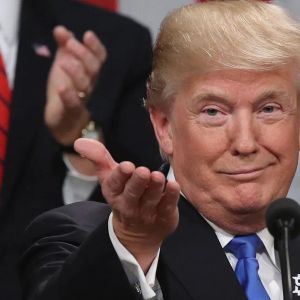Hong Kong’s government has declined a proposal to integrate cryptocurrencies into its fiscal reserves, signaling a cautious stance on adopting digital assets in its economic strategy. The decision follows a proposal by a Hong Kong lawmaker to include cryptocurrencies in the city’s Exchange Fund for ongoing purchases. While the government ruled out prioritizing crypto assets, it left the door slightly open for small-scale investments in the space. This development highlights Hong Kong’s careful approach to cryptocurrency adoption in public financial management, balancing innovation with prudence. The Proposal to Add Cryptocurrencies to Fiscal Reserves The idea of integrating cryptocurrencies into Hong Kong’s fiscal reserves gained attention after a lawmaker suggested leveraging the city’s Exchange Fund to acquire and hold digital assets. The proposal was aimed at positioning Hong Kong as a progressive player in the evolving global financial landscape. The Exchange Fund, which serves as a reserve for safeguarding the stability of Hong Kong’s monetary system, manages significant assets. Including cryptocurrencies in this fund could have marked a bold step toward legitimizing digital assets as part of national financial strategies. Government’s Stance: Caution Over Bold Adoption In its response, the Hong Kong government dismissed the proposal, stating that cryptocurrencies are not a priority for the fiscal reserves. This decision underscores the administration’s cautious approach to integrating high-risk, volatile assets into its robust financial ecosystem. Reasons for Rejection Volatility of Cryptocurrencies: Digital assets like Bitcoin and Ethereum are notoriously volatile, making them unsuitable for reserves that require stability and liquidity. Regulatory Concerns: Despite Hong Kong’s progressive crypto regulations, global scrutiny around cryptocurrencies remains high, adding risks to their adoption in state-level financial instruments. Strategic Focus: The government emphasized that its priority lies in strengthening the existing financial infrastructure rather than experimenting with emerging asset classes. Small-Scale Investments: A Ray of Possibility? While rejecting large-scale integration of cryptocurrencies into fiscal reserves, the Hong Kong government did not entirely rule out small-scale crypto investments. This nuanced position reflects a willingness to explore the potential of digital assets without exposing the city’s financial system to undue risks. Potential Areas for Small-Scale Investment Blockchain Startups: Investments in blockchain technologies and startups could align with Hong Kong’s broader push to become a hub for Web3 innovation. Tokenized Assets: Small-scale investments in tokenized real estate or bonds could provide a controlled environment to test the benefits of digital asset integration. Hong Kong’s Crypto Landscape: A Mixed Approach Hong Kong has been actively positioning itself as a global crypto hub, introducing favorable regulations and promoting blockchain innovation. However, the government’s decision to exclude cryptocurrencies from fiscal reserves reveals a dual strategy: fostering private sector growth in crypto while maintaining conservative public financial practices. Progressive Policies for the Private Sector Licensing Regime for Crypto Exchanges: Hong Kong has implemented a comprehensive licensing framework for digital asset trading platforms, ensuring a secure environment for investors. Support for Web3 Development: The government has committed resources to support Web3 startups, making the city a magnet for blockchain entrepreneurs. Conservative Public Financial Management Despite its openness to innovation, Hong Kong remains cautious about incorporating crypto into public finance, focusing on mitigating risks and maintaining stability in its financial system. Global Context: How Other Nations Approach Crypto Reserves Hong Kong’s decision aligns with the cautious approach taken by most nations regarding cryptocurrencies in fiscal reserves. Countries Exploring Crypto in National Funds El Salvador: The Central American nation has adopted Bitcoin as legal tender and incorporated it into public financial strategies, though the move has been met with criticism for its risks. UAE: The United Arab Emirates is exploring blockchain applications but has yet to integrate cryptocurrencies into its sovereign wealth funds. Lessons from Global Experiments While nations like El Salvador have embraced bold crypto strategies, their experiences highlight the challenges of managing volatility and securing long-term value. Hong Kong’s cautious stance reflects its intent to avoid similar pitfalls. What This Means for the Future of Crypto in Hong Kong The government’s dismissal of large-scale crypto integration into fiscal reserves does not imply a complete rejection of digital assets. Instead, it signifies a balanced approach, wherein public finance remains conservative while the private sector drives innovation. Opportunities for Private Sector Growth The government’s support for blockchain and crypto startups creates a favorable environment for experimentation and growth. This could position Hong Kong as a leader in Web3 innovation, attracting global talent and investment. Long-Term Prospects As the crypto industry matures and regulatory frameworks evolve, Hong Kong may revisit its stance on integrating digital assets into public financial strategies. Until then, its approach will likely focus on enabling innovation while safeguarding financial stability. Conclusion Hong Kong’s decision to dismiss cryptocurrency integration into its fiscal reserves underscores a pragmatic approach to digital asset adoption. By prioritizing stability in public finances and fostering growth in the private sector, the city aims to balance innovation with risk management. While cryptocurrencies may not find a place in fiscal reserves today, the government’s openness to small-scale investments and its broader support for blockchain innovation signal a commitment to exploring their potential in the future. To learn more about the innovative startups shaping the future of the crypto industry, explore our article on latest news , where we delve into the most promising ventures and their potential to disrupt traditional industries.















